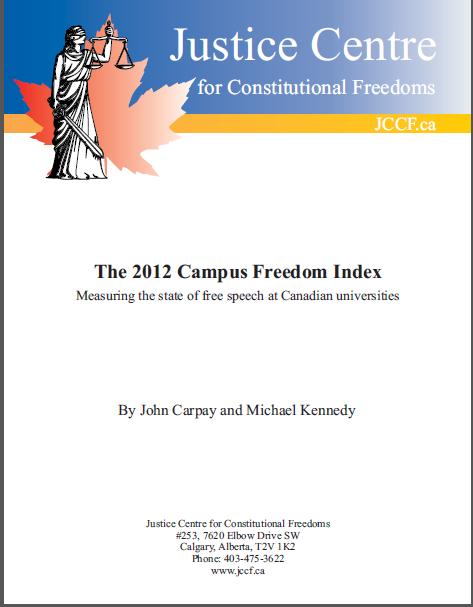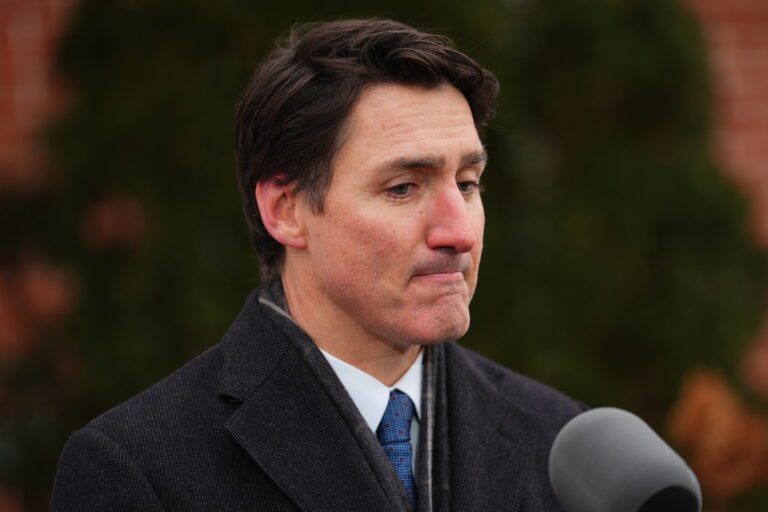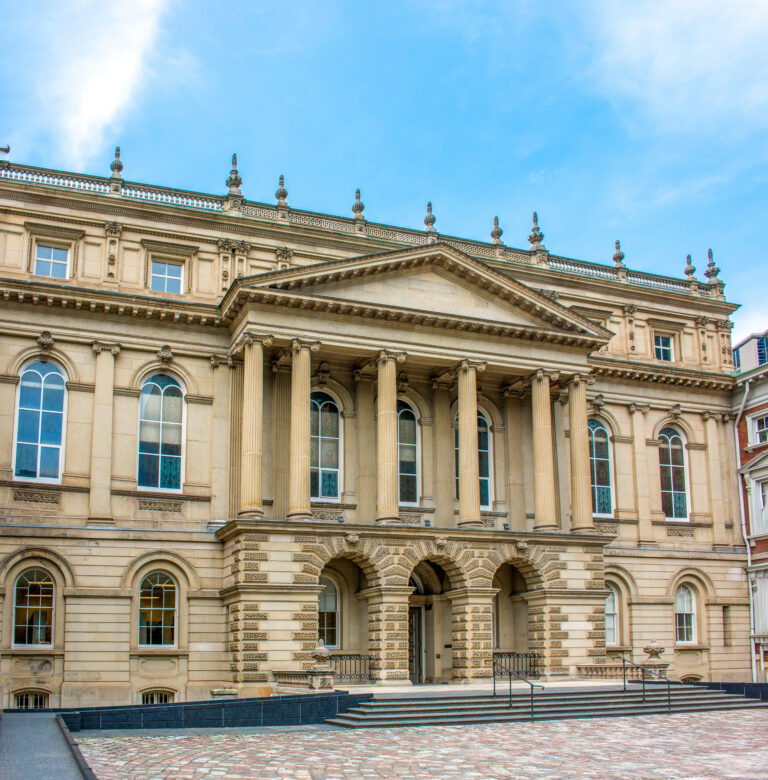 The JCCF’s 2012 Campus Freedom Index raised awareness about the pitiful state of free speech at Canadian public universities, and has also prompted student unions at universities in Ontario, Saskatchewan and Nova Scotia to fix bad policies and correct past behaviours.
The JCCF’s 2012 Campus Freedom Index raised awareness about the pitiful state of free speech at Canadian public universities, and has also prompted student unions at universities in Ontario, Saskatchewan and Nova Scotia to fix bad policies and correct past behaviours.
The Carleton University Students Association (CUSA) Discrimination on Campus Policy stated that CUSA would not support “any campaign, distribution, solicitation, lobbying effort, display, event etc. that seeks to limit or remove a woman’s right to choose her options in the case of pregnancy” such that “no CUSA resources, space, or funding will be allocated for the purpose of promoting these actions.” CUSA used this Policy to deny club status to Carleton Lifeline, the campus pro-life club, numerous times since the enactment of this Policy. This Policy further banned groups that CUSA deems to incite hate, including a prominent and well-respected U.S. Think Tank: the Heritage Foundation. Such blatant examples of censorship explain CUSA’s double ‘F’ grades in the JCCF’s Campus Freedom Index for deliberately silencing students whose viewpoints the elected representatives disagreed with.
However, CUSA recently voted to support campus free speech by removing Section 5 of the Discrimination on Campus Policy, thereby ending CUSA’s refusal to allow pro-life groups access to the same resources available to other student groups. The motion was presented by student representatives who felt compelled to improve CUSA’s reputation as an open forum for discussion of all topics, including controversial ones.
The motion passed on December 12, 2012, and explicitly mentions the 2012 Campus Freedom Index as a catalyst for these changes:
Whereas Carleton University and CUSA received failing grades for restricting fee and fair dialogue, in a recent [Campus] Freedom Index report conducted by the Justice Centre for Constitutional Freedoms…
… Whereas item 2 should explicitly state that CUSA will not discriminate in the provision of resources or facilities based on a group’s political, religious, or philosophical views
Whereas CUSA should not arbitrarily list organizations or groups that the association wishes to ban (item 4) but instead should work to condemn all groups that commit hate crimes and actively promote hatred and discrimination…
…Be it resolved that item 2 of the current Discrimination on Campus Policy be replaced with the following:
- 2. CUSA will ensure that its members have access to facilities and resources without fear of discrimination based on a person or group’s racial, religious, political, or sexual distinction. Access to facilities and resources will be limited if a group’s clear mandate and purpose is to perpetuate hate or discrimination.
Be it resolved that Council strike “members of the Klu Klux Klan, the white Aryan Resistance, the Heritage Front, the Heritage Foundation, Canadians for the Preservation of English” in item 4.
With these positive steps taken, Carleton Lifeline was at last able to gain official recognition with CUSA, enabling this club to have the same access to resources and opportunities as any other student group would through CUSA. In January 2013, the club was ratified.
The University of Saskatchewan Students Union (USSU), which earned an ‘F’ in the Campus Freedom Index, passed a new motion that states it unequivocally upholds the free expression rights of students on campus. With input and advice from the JCCF, on March 20, the USSU passed a Free Speech Policy which commits the USSU to uphold free speech rights on campus while refraining from content-based censorship against students and student groups. The new Policy reads:
…the Student Union will support and protect the free speech of all parties under its jurisdiction. The Student Union will not endeavor to limit or prevent the exercise of free speech on campus and will work to aid those parties whose free speech rights are threatened. The Union further recognizes the fair and reasonable limitations on free expression as stated in the Canadian Charter of Rights and Freedoms and the Criminal Code of Canada and pledges not to exercise censorship outside of these legal limits. When members of the Union use speech as a direct attack that has the effect of preventing the lawful exercise of speech by members or invited guests, or interfering with the conduct of authorized University business, the Student Union may intervene…
The Dalhousie Student Union (DSU) earned an ‘F’ in the 2012 Campus Freedom Index in part because its Constitution limited the speech of students campaigning for or against referendum questions. In the Constitution, the DSU required all students who campaigned for the ‘yes’ or ‘no’ side of a referendum question to register in one official ‘yes’ or ‘no’ campaign. This policy ignored the fact that a free society allows diverse competition of ideas to support or oppose a question, and that no one group should be given the exclusive ability to speak for everybody else.
The Campus Freedom Index drew attention to the censoring of student campaigners at Dalhousie. In October 2012, DSU Council amended the Elections Policy to remove limits on how many ‘yes’ and ‘no’ campaigns can participate in referenda. The change is a positive step for free speech at Dalhousie.
The influence of JCCF and the Campus Freedom Index in strengthening free speech at Canadian university campuses is clear. With these three victories, there is no doubt that the Index will continue to inspire students across Canada to repeal speech codes and preserve expression rights.








